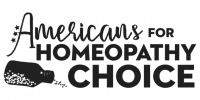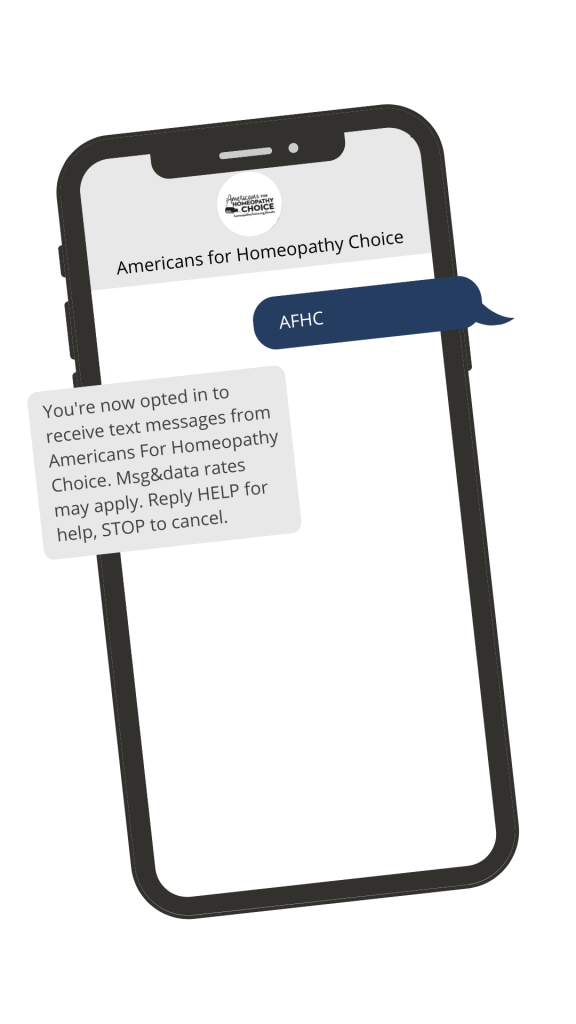Hello! We’re so glad you’re taking the time to join us for the 18th edition of the Homeopathy Choice Insider. We trust it’s been an eye-opening look at what we work so diligently to do, each week, at Americans for Homeopathy Choice.
If you’d like to read the summary of today’s report, scroll down to the end of this post!
Outline:
- The U.S. Food and Drug Administration (FDA) is an enormous organization with over 18,000 employees. Despite its large size, the FDA is overwhelmed with the scale of its responsibilities, which include not only drugs, but the entire U.S. food supply and all cosmetics sold in the United States.
- In its proposed new guidance for homeopathic medicines, the FDA said it was applying a “risk-basked approach” that was already widely used across the agency in many areas it regulates.
- AFHC wanted to learn more about this risk-based approach, but when we asked the FDA for a copy of the document that outlines this approach, our liaison at the FDA could find no such document!
- This lead AFHC to file a Freedom of Information Act (FOIA) request to try to obtain the FDA’s risk-based approach policy, but the FDA has failed to respond to this request for over a year.
- Another FOIA request filed by AFHC has revealed that the FDA has no homeopathy experts on its staff. This means that their proposed new guidance on homeopathic medicines was drafted without input from anyone who knows anything about homeopathy.
- AFHC has filed many more requests for information from the FDA and gotten other astonishing results. We’re working to build a portfolio of information that we can present to Congress to show that the regulation of homeopathic medicines by the FDA is being done in a way that is not wise or meaningful to the consumer.
- This work takes patience and determination, and we can’t do it without our amazing volunteers and donors!
- To watch a replay of our Fall Pledge Drive and learn more about how YOU can get involved in this important work, go to the AFHC homepage, or click the link at the bottom of today’s blog.
Our job is not to change the world;
our job is to steward the gifts we’ve been given.
Summary of Today’s Episode:
Welcome to another edition of Homeopathy Choice Insider where we give you up-to- date information about the state of homeopathy in America and tips on how you can help promote and protect homeopathy for ourselves and for future generations. I’mPaola Brown, president of Americans for Homeopathy Choice.
The U.S. Food and Drug Administration is an enormous organization with more than 18,000 employees. How the FDA works and who’s responsible for what is not always easy to determine. Today, I’ll share a little about what it took to get just two valuable pieces of information from the FDA and the mysterious results.
When we first started talking with the FDA, we very much wanted to know about the FDA’s so-called risk-based approach. The agency wrote in its proposed new guidance for homeopathic medicines that it wanted to apply this approach to homeopathic products. The FDA said that this approach was already in use across the agency in many areas it regulates, and so, it only seemed logical to apply it to homeopathic medicines, too. Focusing limited enforcement resources on the riskiest products makes sense for the FDA. Despite its size, the agency is overwhelmed by the scale of its responsibilities that include not only drugs, but also the entire U.S. food supply and all cosmetics sold in the United States.
So, we asked the FDA for a copy of the document that outlines this risk-based approach that the agency stated in writing it is applying to many other areas it regulates. The answer we got a few weeks later was astonishing: Our liaison at the FDA wrote that she could find no such document anywhere in the agency. We thought maybe she had overlooked something. So, to get a more formal search going we filed what is called a Freedom of Information Act (FOIA) request. This act allows journalists, citizens and others to gain access to government documents which are, after all, paid for with taxpayer dollars. We again waited for a reply. After more than a year, the agency has failed to respond.
One other key piece of information we wanted to know was whether the FDA has any experts in homeopathy on its staff. We had yet to meet any such experts through correspondence or in any of our meetings. So, we filed another Freedom of Information Act request. Many months later, we got another astonishing response: The FDA said that it has no experts in homeopathy on its staff. Since no recognized expert that we know of in the homeopathy community had been contacted by the FDA regarding the proposed new guidance for regulating homeopathy—and since there are no experts in homeopathy at the FDA, we concluded that the proposed guidance was written with zero input from anyone who knows anything about homeopathy.
We’ve made many more requests for information from the FDA, some with equally astonishing results. It takes patience to do this as we build a case for better-informed regulation of homeopathy. And, we’re glad for donor and volunteer support which has allowed us to do this. To watch a replay of our Fall Pledge Drive and learn more about how YOU can get involved in this critical work, check out the AFHC homepage:
Thanks for listening. I’ll be back a week from now with another update.
Sharing is caring!

